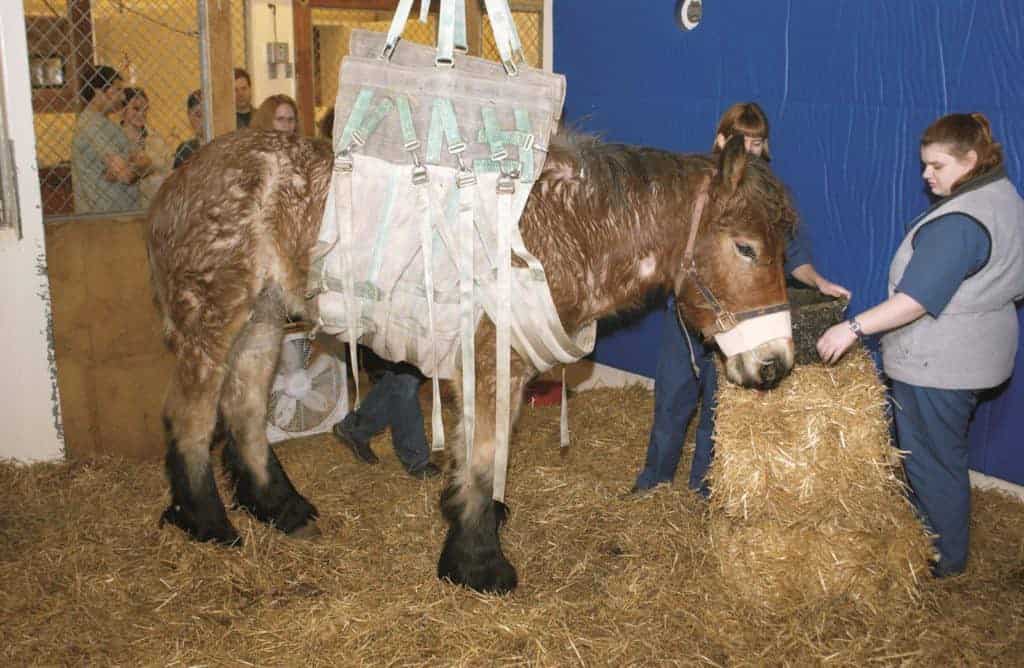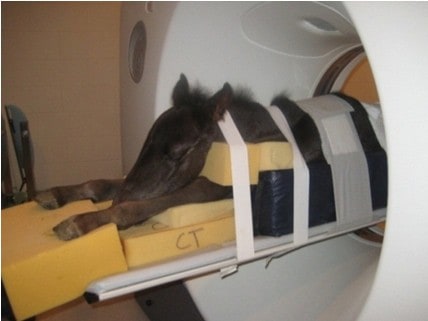
Macrolide Antibiotics’ Effects on Sweating in Foals Examined
Researcher found that three commonly used macrolides suppressed foals’ normal sweat responses to varying degrees.

Researcher found that three commonly used macrolides suppressed foals’ normal sweat responses to varying degrees.

Ulcers were more prevalent in domestic horses than feral ones, but the latter group wasn’t immune to these lesions.

Strengthening referring vets’ and specialists’ relationships could help improve the referral process, researchers found.

Researchers are exploring the use of renal replacement therapy to help horses with acute renal failure.

Learn about current recommendations for diagnosis and treatment of this often deadly disease.

Researchers weed out the causes of deadly seasonal pasture myopathy and atypical myopathy in horses.

Equine immunodeficiencies can be challenging to diagnose, and even more difficult–or impossible–to manage.

Learn about coronavirus, EPM, Lyme disease, influenza, and Corynebacterium pseudotuberculosis.

Researchers believe the fetal consciousness transition could have a significant impact on neonatal health.

Gain insight about postoperative ileus: a potentially life-threatening complication of colic surgery.

Equine collapse frequently presents a diagnostic challenge for veterinarians, and many cases go unsolved.

A combination of inhaled corticosteroids and environmental antigen avoidance helped horses with heaves.

Veterinarians are taking a page from human medicine books by using CT to evaluate pulmonary disease in foals.
Learn how an equine internal medicine specialist might be able to help your horse.

An LSU study found that, after omeprazole treatment, SmartGut Ultra reduced the return of ulcers in horses.

One researcher reviews vitamin E supplementation in horses with neurologic disorders.
Stay on top of the most recent Horse Health news with
"*" indicates required fields